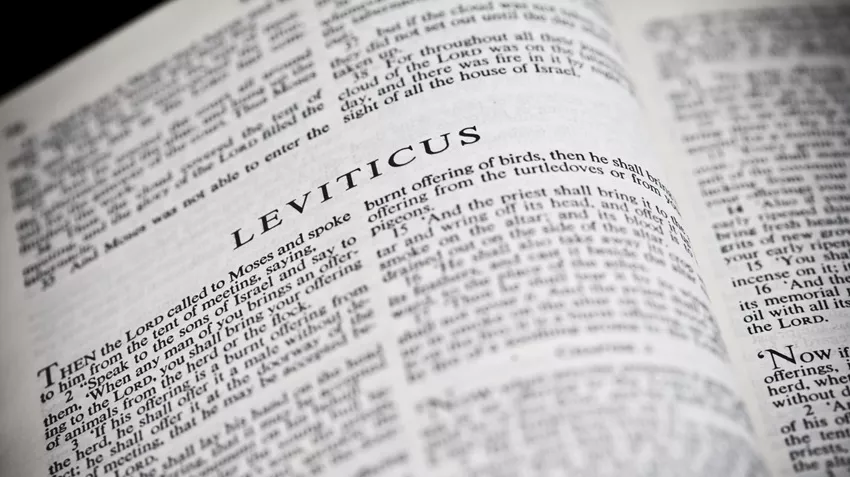Leviticus Chapter 12 Summary
Leviticus Chapter 12 provides instructions for purification following childbirth. When a woman gives birth, she becomes ceremonially unclean for a specified period—seven days for a son and fourteen days for a daughter. After this, she must bring a sacrifice to the priest for her purification, which includes a lamb for a burnt offering and a pigeon or dove for a sin offering. If the woman cannot afford a lamb, she may offer two doves or two pigeons instead. This chapter underscores the importance of purity and the need for atonement, reflecting God‘s holiness and the necessity of ritual purification in the community.
Bible Leviticus Chapter 12
Welcome to read Leviticus Chapter 12. Here is the list of Exodus Chapter 12:
What Does Leviticus Chapter 12 Teach Us?
Leviticus Chapter 12 outlines the purification rituals for women following childbirth, detailing the period of ceremonial uncleanliness and the necessary sacrifices for atonement. Though these laws may seem distant from contemporary practices, they provide important lessons about holiness, purification, and the sanctity of life. Here are the key lessons from Leviticus Chapter 12:
1. The Sanctity of Life and Birth
Leviticus 12 emphasizes the importance of birth as a life event that requires a process of purification. While the woman’s physical condition after childbirth is addressed, the overarching message is that life itself is sacred and blessed by God. The chapter underscores the importance of childbirth, not as a time of shame, but as part of God’s ongoing work in creation. Every child, whether male or female, is a gift from God and part of His divine plan.
2. The Need for Purification After Childbirth
The chapter prescribes a period of ritual purification for the mother following the birth of a child. This purification process symbolizes the transition from a state of ceremonial uncleanness to one of holiness. Though childbirth is not inherently sinful, this purification highlights the need for cleansing after a significant life event, acknowledging God’s holiness in every aspect of life. It teaches believers that every aspect of life—whether joyous or painful—requires a posture of reverence and sanctification before God.
3. The Role of Sacrifice in Atonement
A key element in Leviticus 12 is the offering of sacrifices at the end of the purification period. The mother was to bring a lamb for a burnt offering and a pigeon or dove for a sin offering, symbolizing the need for atonement. Though childbirth is not an immoral act, this process of sacrifice signifies that even innocent acts of life and creation require God’s cleansing touch. It points to the necessity of reconciliation with God and the need for sacrifice to restore fellowship with Him. For Christians, this foreshadows the ultimate atonement brought through Jesus Christ, who cleanses all believers from sin.
4. God’s Care for Women and Families
Leviticus 12 shows that God cares about the well-being of women and families, providing a clear structure for their physical and spiritual recovery after childbirth. The care taken to explain the purification process emphasizes God’s concern for every aspect of life, including the physical needs of women in the postpartum period. For modern believers, this chapter teaches that God is intimately involved in the details of our lives and offers His care and provision through His laws and commands.
5. The Call to Holiness in Everyday Life
This chapter reminds us that holiness is not just about spiritual matters but extends to everyday life, including family life and even childbirth. The rituals in Leviticus 12 are not about condemning a woman for giving birth but about recognizing God’s holiness in the midst of normal life events. This teaches us that every action—whether mundane or monumental—can be an opportunity to seek God’s sanctification and blessing, encouraging us to pursue holiness in all areas of life.
6. The Principle of Restored Fellowship
The final aspect of Leviticus 12 is the restoration of fellowship between the woman and God after her purification. The offerings she brings mark the renewal of her spiritual state and reconciliation with God. This serves as a reminder that, even in our everyday lives, we must seek God’s cleansing and forgiveness to maintain fellowship with Him. For Christians, this also points to the need for Christ’s work of purification, as He continually restores us to God.
In conclusion, Leviticus Chapter 12 teaches us about the sanctity of life, the need for purification, the role of sacrifice, and the care God provides for women and families. It calls us to recognize the holiness of God in all aspects of our lives, and to seek His cleansing, whether in times of joy or trial. Most importantly, it points to the greater sacrifice of Christ, who offers ultimate purification for all believers.
Related topics:


